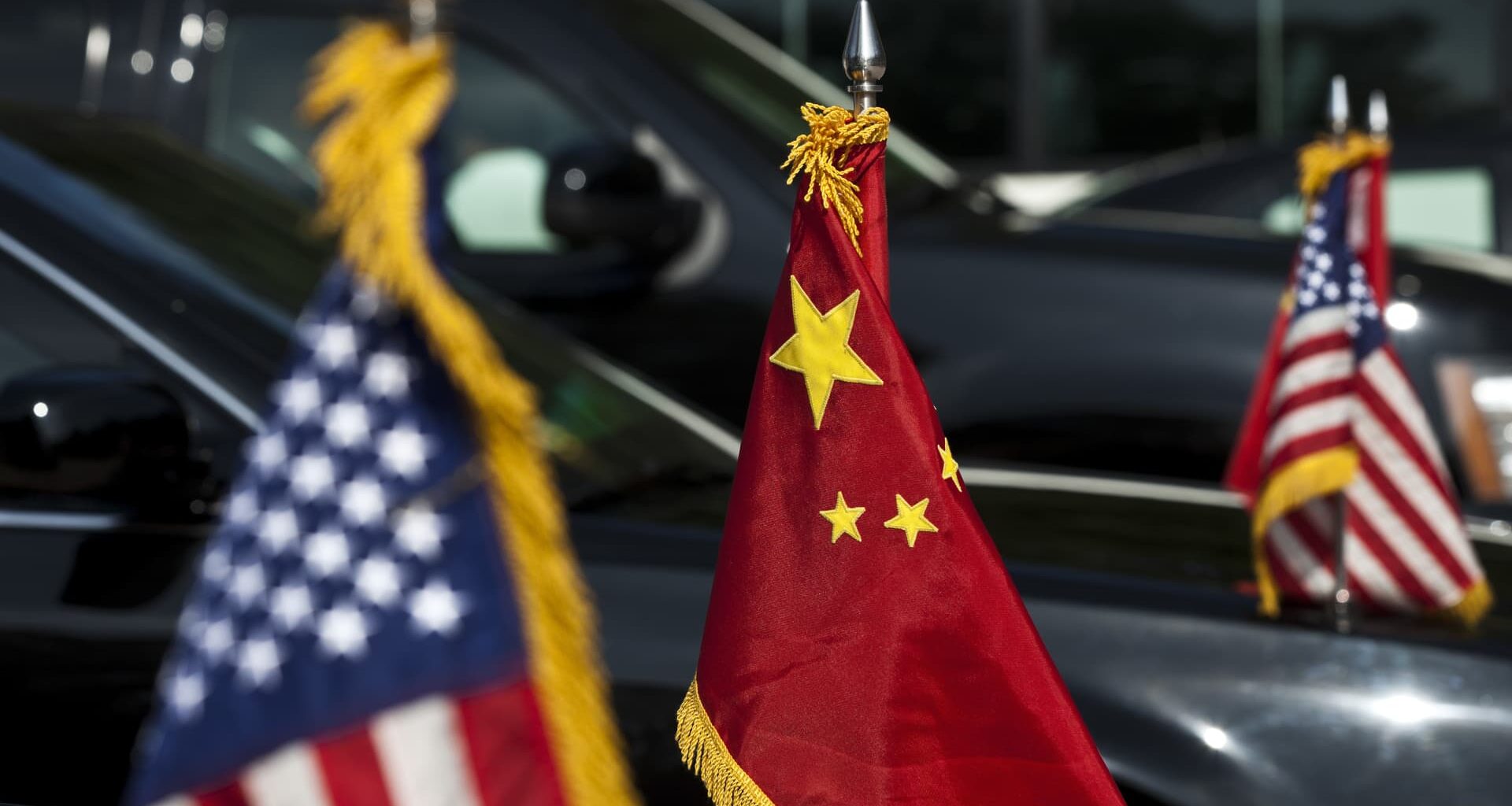U.S. and China national flags adorn motorcades in Beijing, China.
Pool | Getty Images News | Getty Images
China on Sunday defended its new export controls on rare earths as a “legitimate” measure under international law, pushing back against U.S. accusations of economic coercion after Washington announced sweeping retaliatory tariffs and export restrictions.
The Chinese Ministry of Commerce said the controls, issued Oct. 9, were part of Beijing’s effort to strengthen its export control system and “better safeguard world peace and regional stability” amid what it described as a turbulent global security environment.
The measures, which now cover not only rare earth materials but also related intellectual property and technologies, were announced just weeks before a potential meeting between U.S. President Donald Trump and Chinese leader Xi Jinping.
“These controls do not constitute export bans. Applications that meet the requirements will be approved,” a commerce ministry spokesperson said. “China has fully assessed the potential impact of these measures on the supply chain and is confident that the impact will be very limited.”
The ministry said it had notified “relevant countries and regions” through bilateral dialogue mechanisms before unveiling the measures, adding that China remains open to further cooperation on export control practices to “safeguard the security and stability of global industrial and supply chains.”
China’s announcement on Oct. 9 also required foreign entities to obtain a license from Beijing to export any products containing over 0.1% of domestically-sourced rare earths, or manufactured using China’s extraction, refining, magnet-making or recycling technology.
Applications for items that could be used in weaponry, terrorism or other military purposes will also be rejected.
The move triggered an immediate response from Washington. On Oct. 10, Trump announced new tariffs of 100% on imports from China “over and above any Tariff that they are currently paying,” starting on Nov. 1. Trump also said that the U.S., on that same date, would also impose export controls on “any and all critical software.”
In response, the Chinese Commerce Ministry accused the U.S. of “double standards.”
“For a long time, the U.S. has generalized national security, abused export controls,” China’s commerce ministry said, pointing out that the U.S. control list covers more than 3,000 items, compared with under 1,000 on China’s list.
China accounts for about 70% of the global supply and has repeatedly used the critically needed minerals as a bargaining chip in trade discussions.
Hours after tightening export controls on rare earths, China also announced that it would start charging U.S. ships for docking at Chinese ports from Oct. 14 — a direct response to Washington for imposing fees on Chinese vessels arriving at U.S. ports, set to take effect the same day.
The U.S. accounts for only 0.1% of global shipbuilding, compared to 53.3% for China, according to the Center for Strategic and International Studies.
The Chinese commerce ministry on Sunday local time also defended its reciprocal decision as “necessary passive defensive actions.” It added that the U.S. actions “seriously undermined the atmosphere of the economic and trade talks between the two sides.”
Senior U.S. and Chinese officials met for trade negotiations in Geneva in May — the first since Trump launched a global trade war. A follow-up meeting in London in June led to a trade “framework,” while a third round of high-level talks took place a month later, where both sides signaled progress in negotiations.
The most recent trade meetings in Madrid in September yielded a “basic framework consensus” on the divestment of Chinese-owned TikTok, ahead of a deadline to either divest its U.S. business or shut down the social media app in the country.
On Sept. 19, Trump and Xi spoke on the phone but did not finalize a deal on TikTok. After the call, Trump announced that he and Xi agreed to meet on the sidelines of the Asia-Pacific Economic Cooperation forum during the last week of October in Gyeongju, South Korea.
While China has been silent on future meetings, Trump had also said he would visit China early next year and that Xi would come to the U.S. at a later date.
However, Trump on Friday threatened in a social media post to cancel his upcoming meeting with Xi after China’s latest tightening of export curbs on rare earths.
— CNBC’s Anniek Bao and Evelyn Cheng contributed to this story.
This is breaking news. Please refresh for updates.

